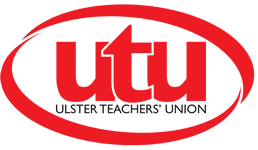Communication to all teachers regarding Development of Inspection.
Please see communication below, produced by the joint (teachers’ unions and management) working group progressing the Review of Accountability Framework under the Workforce Review Project in line with the commitments made in the Teachers’ Pay and Workload Agreement. It aims to update the teaching workforce on the significant work underway around the Development of Inspection and about what to expect in the new term.
Development of inspection (DoI) consultation
Over recent months, ETI have been consulting widely, with unions, schools/organisations, teachers and middle and senior leaders, in a variety of ways, in order to capture the views of as many stakeholders as possible around the development of inspection, which will ultimately lead to a co-designed quality improvement strategy.
Purpose of inspection
Almost all (94%) of the schools/organisations who completed the online development of inspection questionnaire strongly agreed or agreed that the purpose of inspection outlined below is appropriate:“The purpose of all inspection activity is to build capacity within the organisations inspected to provide high quality education and outcomes for learners. This will be achieved by: promoting processes of self-evaluation which will endure beyond the period of the inspection; evaluating and reporting objectively and fairly on the quality of provision in the best interests of the learners; helping to inform and establish improved ways of working through professional dialogue; and identifying, affirming, reporting, and disseminating examples of highly effective practice from which others may learn."
Empowering Improvement project
You may be aware that ETI has been taking forward its Empowering Improvement – Stepping Forward Together capacity building project, which is now largely complete. This has involved online sessions with just under 700 schools/organisations to support self-evaluation and work around the development of inspection.
ETI are pleased that just under 1300 participants, mostly middle leaders, engaged enthusiastically in the project and the feedback around their experience in this work, and its impact, are very positive. Follow-on work with the district inspectors for many of the schools/organisations involved has begun and will continue in the new term.
ETI are grateful for the support given to the project across the education system, including support and advice from the teacher unions in the Northern Ireland Teachers’ Council (NITC) at various stages throughout it.
Next steps: what can schools/organisations expect (September 2022)?
The development by ETI of a quality improvement strategy is ONGOING.
As the quality improvement strategy takes shape, ETI is committed to:
• ongoing and regular engagement with NITC in relation to development of inspection and other matters;
• the minimisation of the workload associated with inspection, including clear guidance on the information/documentation regarded by ETI as absolutely essential;
• an exploratory approach to inspection during term one, including the trialling of inspection approaches in the first part of the term;
• working with the schools/organisations which self-nominated on the trial of inspection approaches and associated indicators and guidance during late September and October 2022;
• improved, direct communication with schools/organisations, using a variety of methods such as regular webinars, video resources and social media, in order to better inform teachers/tutors and middle and senior leaders about inspection, and to dispel any misconceptions; and
• the utilisation of InsPIRE (ETI’s Inspection Planning, Insight and Reporting Environment, a new electronic inspection and communication system) to reduce the bureaucracy of inspection-related work and ensure schools/organisations are abreast of all inspection guidance.
The evolving development by ETI of a quality improvement strategy will include:
• individual organisation inspections;
• thematic evaluations;
• broader inspection and evaluation work; and
• further empowering improvement work, including professional learning approaches to communicate and share practice to promote improvement.
Central to the strategy is building the capacity of schools/organisations and supporting them to bring about improvement through self-evaluation.

